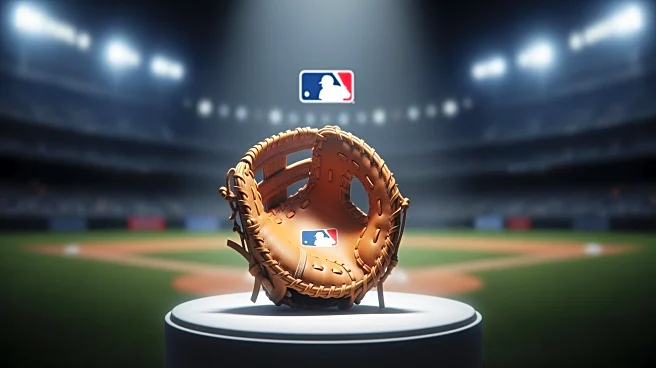What's Happening?
Alejandro Kirk, the Toronto Blue Jays catcher, has become a focal point during the World Series due to his height. At 5-foot-8, Kirk is one of the shortest players in Major League Baseball (MLB), yet his stature
does not hinder his performance. In Game 1 of the World Series, Kirk demonstrated his skill by achieving three hits, including a two-run home run, while also catching a stellar game. Despite his height and weight of 245 pounds, Kirk's hand-eye coordination and gameplay are what truly matter in baseball, overshadowing physical attributes. Kirk is among a select group of players who are shorter than average in the league, with only seven players listed as shorter than him.
Why It's Important?
Kirk's performance challenges traditional perceptions of athleticism in baseball, emphasizing skill over physical attributes. His success highlights the diversity of player profiles in MLB, where talent and coordination can outweigh conventional expectations of height and build. This serves as an inspiration to aspiring athletes who may not fit the typical mold but possess the necessary skills to excel. Kirk's achievements could influence scouting and recruitment strategies, encouraging teams to focus more on skill and less on physical characteristics. This shift could broaden the pool of talent considered for professional baseball, impacting team compositions and game strategies.
What's Next?
As the World Series progresses, Kirk's performance will continue to be scrutinized, potentially influencing his career trajectory and market value. If he maintains his high level of play, Kirk could become a key player for the Blue Jays, attracting attention from other teams and sponsors. His unique profile might also lead to increased media coverage and fan engagement, further solidifying his role as a standout player in MLB. Teams may begin to reassess their criteria for player selection, valuing skill and performance over physical attributes, which could lead to a more inclusive approach in the sport.
Beyond the Headlines
Kirk's success may prompt discussions about the broader implications of diversity in sports, challenging stereotypes and encouraging inclusivity. His story could inspire changes in youth sports programs, promoting the idea that talent can come in various forms and encouraging young athletes to pursue their dreams regardless of physical limitations. This could lead to a cultural shift in how athletes are perceived and valued, fostering a more inclusive environment in professional sports.









